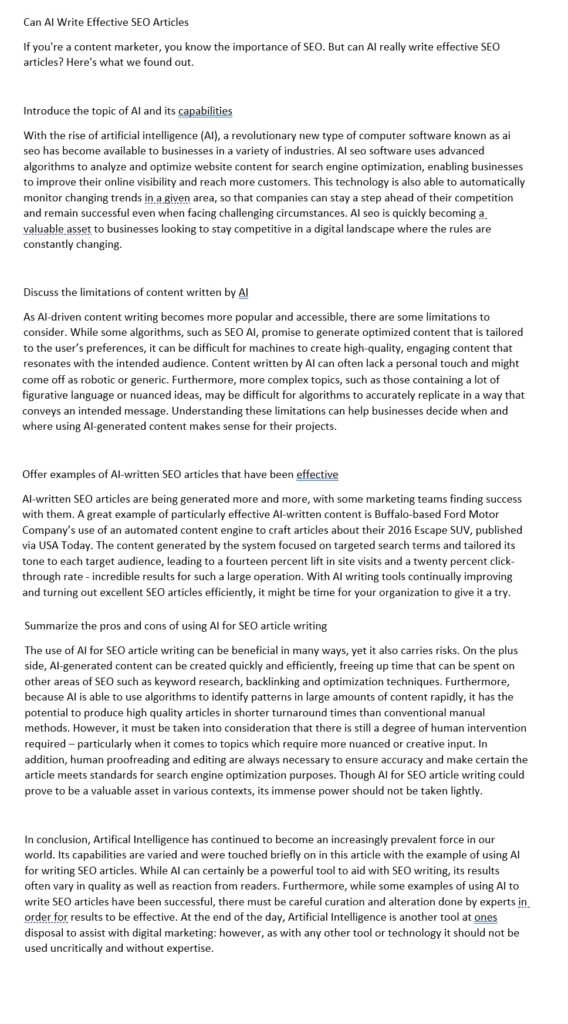
If you’ve been in marketing for a few years, you’ve probably had a project where you thought, ‘I wish I could just skip this one’…either because the content became repetitive or because the articles are so difficult to write that the project starts to become the one you dread each week. Once upon a time, the only way you could back out of writing articles was to either fire the client or subcontract the work to someone else. Now you have a third option: you can use AI to write your SEO friendly articles.
You might have assumptions about AI writing articles but in the spirit of experimentation we decided to run a test. Can AI content writing software produce a high-quality article? How about writing an article about SEO articles? Here is how it went.
When you sit down with an AI interface to write, you’re expected to have certain fields ready to go. They prompt you by asking for a title, keywords and headings for each section you want to cover. That might sound obvious to a seasoned writer, but what if you have never thought about SEO before? You might not be prepared with those fields, or you might fill those fields off the cuff, which could lead to some mediocre results. Assuming you can fill in those fields reasonably well, you’ll get an article like the one below.
At first pass, it’s a pretty good article. The length is good, our target keyword, ‘seo article’ is in it, so the AI met the bar for entry. However, there are some drawbacks including the following:
There are spelling and grammar errors. If a human wrote this, you’d hand it back and tell them to fix their mistakes. With AI, you’ll be fixing all the mistakes (or publishing a sub-par article).
There is content that isn’t intended to be published. All the section titles (example: Introduce the topic of AI and its capabilities) are tasks internal to the writing process, not content that a reader would find useful. The tool is outputting the instructions you gave it along with the content itself.
There are outside findings referenced in the article. If you’re going to reference Ford Motor Company and USA Today ethically you now have to verify and document those facts. In this case, we couldn’t find any information on the Ford / USA Today writing project anywhere. Now we’ve spent time researching content that can’t go into the article.
What can we make of this experiment? Here are a few lessons you should keep in mind if you decide to use an AI tool for writing SEO articles:
You have to be prepared ahead of time. If you’re new to keyword research and / or writing articles for a website, the AI isn’t going to help you. You’ll need to practice this on your own. If you’re relying on AI to do the heavy lifting you’re not going to get that practice.
You will have to edit the output. If you put too much faith in what the AI software comes up with, you’re likely to publish errors that could get you in trouble with your team, your client or cost you credibility with your users.
Learn (and practice) how to land the plane. Just as pilots are forgetting how to land planes in certain situations, SEOs are in danger of forgetting some of their skills. An AI tool might help with writer’s block but if you outsource all your writing to AI, you won’t have the instincts you need when a project comes along that needs a human touch.
An AI tool might be part of your creative suite—especially if you’re a full time writer on short deadlines—but it’s not going to come up with great SEO, so make sure you’re an SEO pro before you open the AI tool or it could wind up causing a fair amount of harm along with the benefits.


